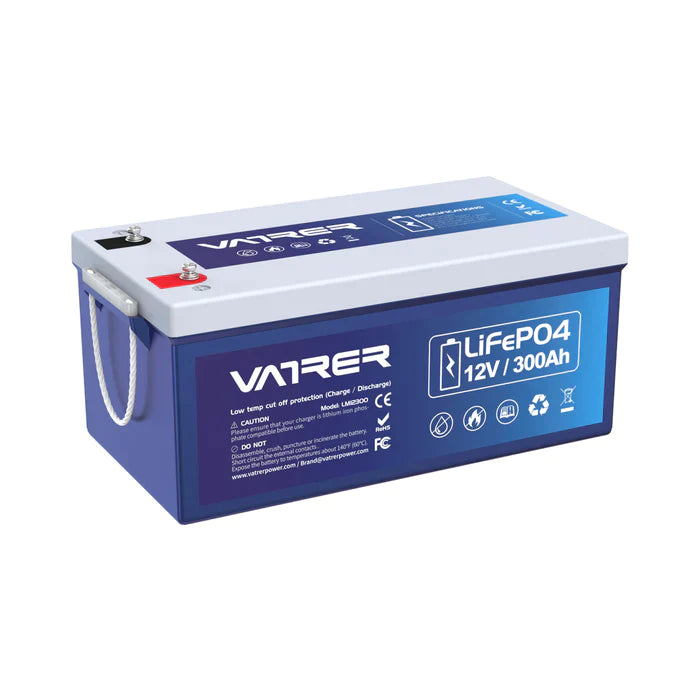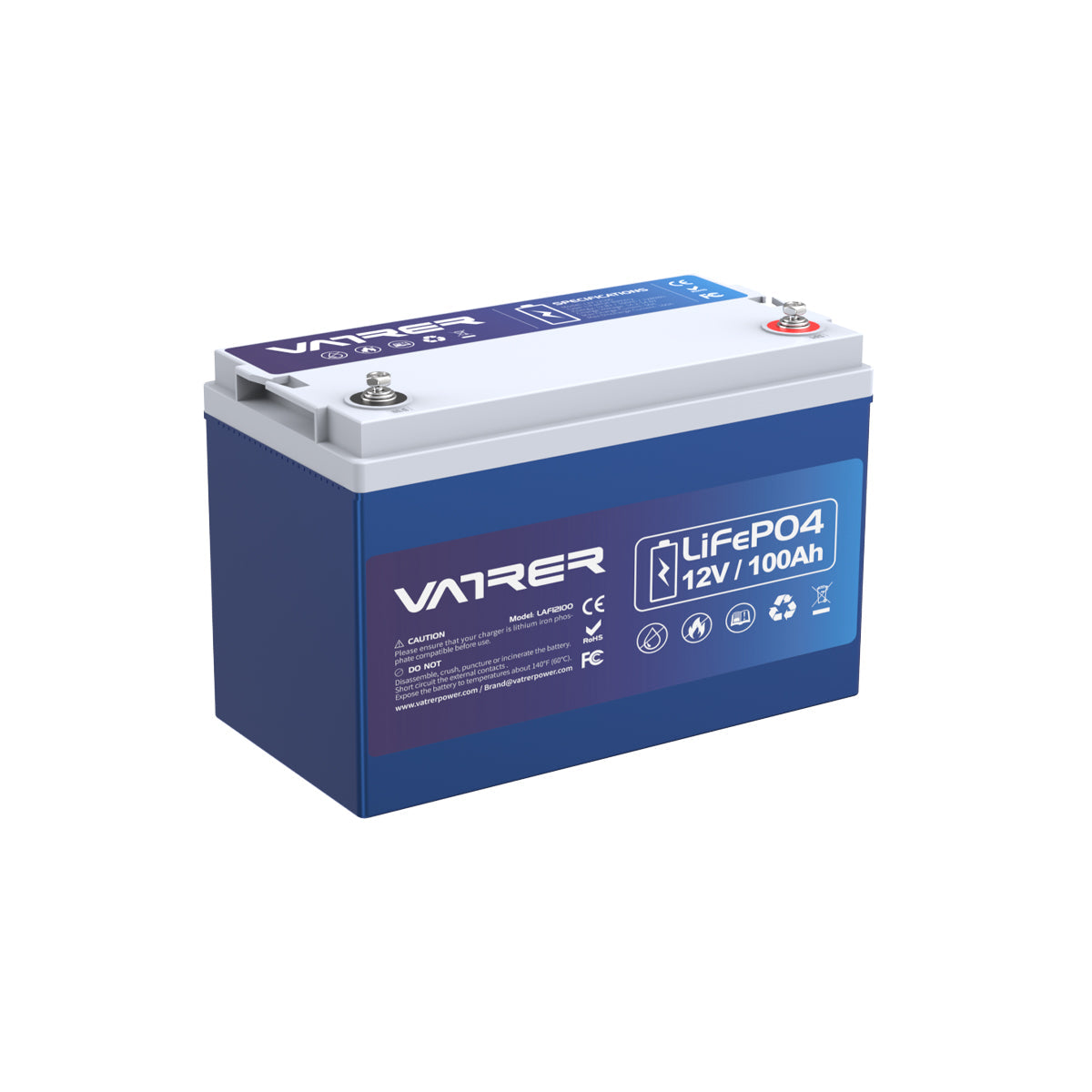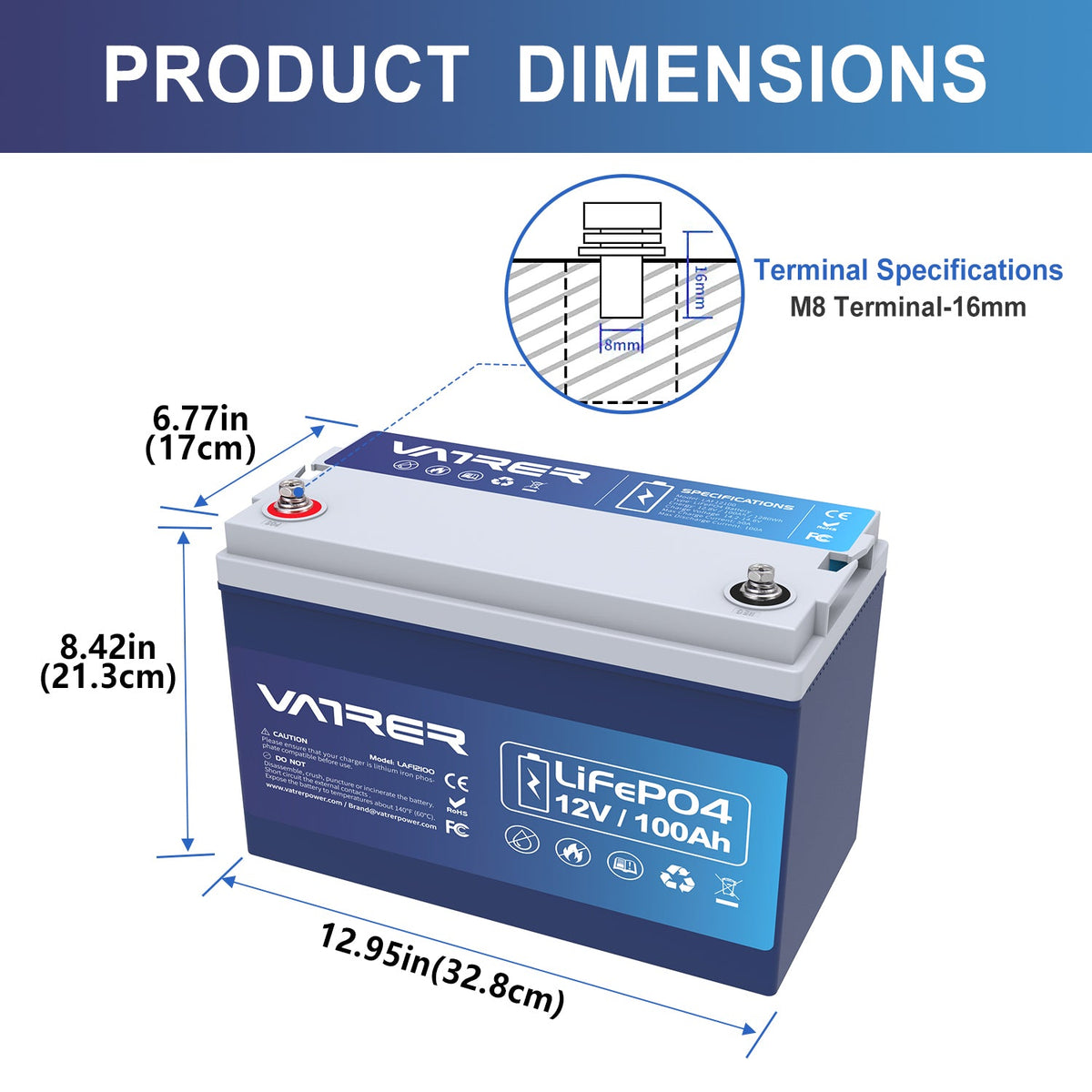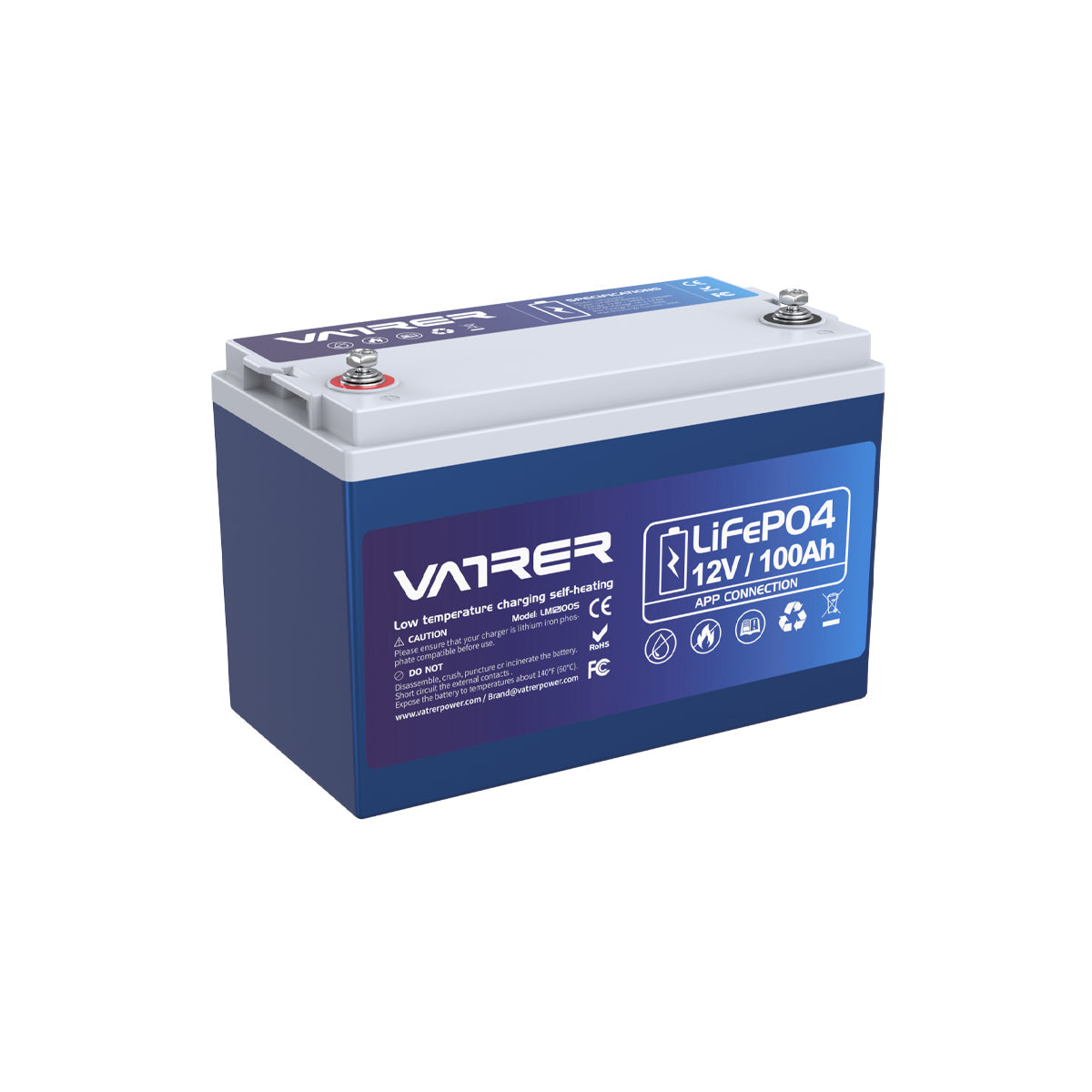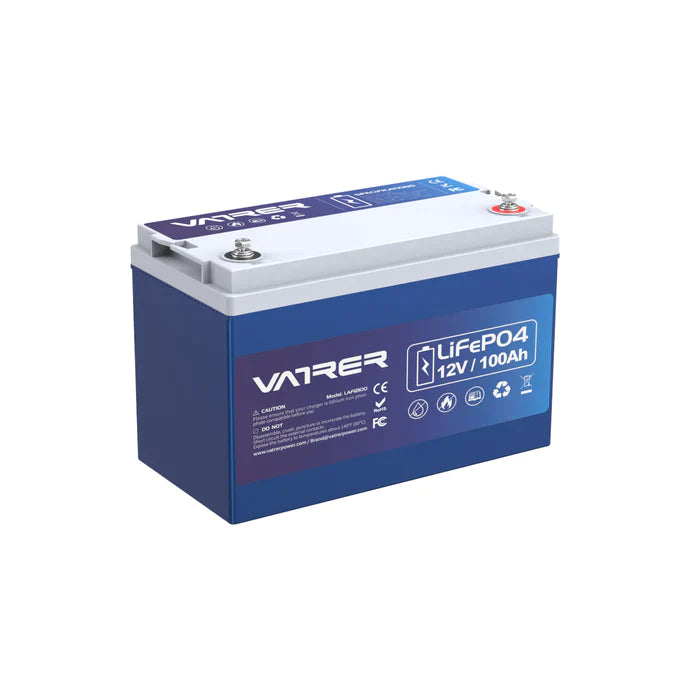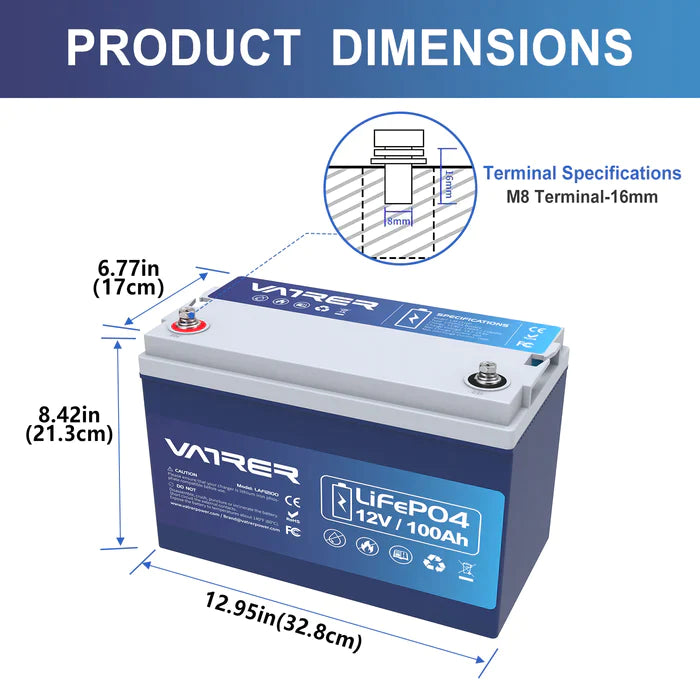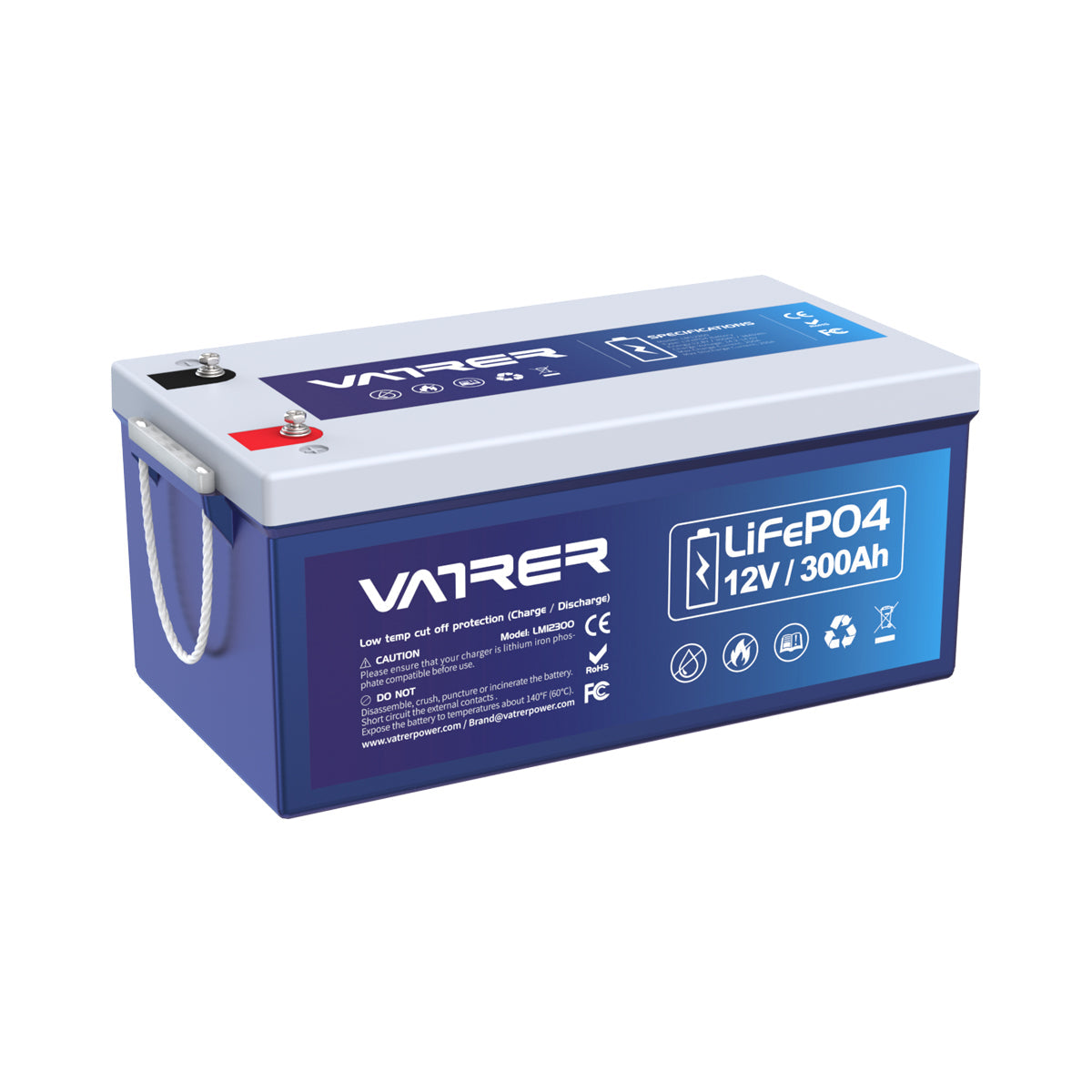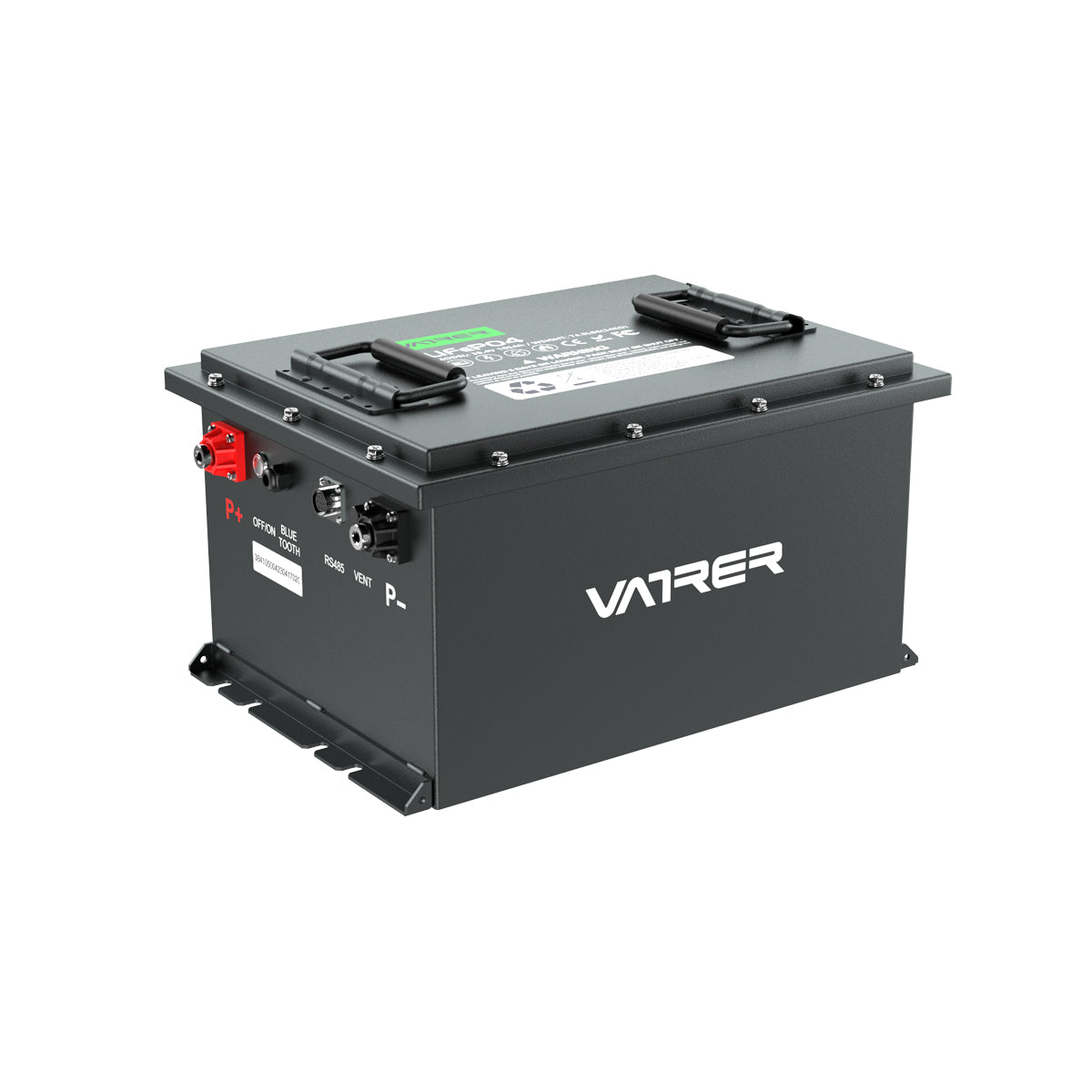Charging a lithium battery, especially a 100Ah (amp-hour) one, can be a critical factor in various applications, from solar energy systems to electric vehicles and backup power supplies. Understanding the charging time is essential for planning and optimizing usage. In this blog post, we’ll delve into the factors that influence the charging time of a 100Ah lithium battery and provide a detailed breakdown of the process.
Factors Influencing Charging Time
Several factors determine how long it takes to charge a lithium battery. These include:
-
Charging Current (Amperage): The rate at which current is supplied to the battery.
-
Battery State of Charge (SOC): The current charge level of the battery.
-
Charger Efficiency: How efficiently the charger converts electrical energy into stored chemical energy.
-
Battery Management System (BMS): The system that manages the charging and discharging processes to ensure safety and efficiency.
-
Ambient Temperature: The surrounding temperature, which can affect the battery's performance.
Let's explore these factors in more detail.
Charging Current
The charging current plays a crucial role in determining the charging time. The formula to calculate the charging time is:
For a 100Ah battery, if you use a charger that provides a constant current of 20A, the charging time would be:
However, this is an ideal scenario, assuming 100% efficiency and no losses.
Battery State of Charge (SOC)
The state of charge of the battery when you begin charging is also important. If the battery is completely discharged, it will take longer to charge than if it is partially charged. For instance, if a 100Ah battery is at 50% SOC, you only need to charge 50Ah to reach full capacity.
Charger Efficiency
Chargers are not 100% efficient. Some energy is lost as heat, and inefficiencies in the conversion process mean that it usually takes slightly longer to charge a battery than the simple formula might suggest. Typical charger efficiencies range from 85% to 95%.
Battery Management System (BMS)
The BMS is designed to protect the battery from overcharging and ensure that each cell is charged evenly. It may reduce the charging current as the battery approaches full charge, extending the total charging time. The BMS also monitors temperature and voltage to optimize the charging process.
Ambient Temperature
Temperature affects the chemical reactions inside the battery. Extremely high or low temperatures can slow down the charging process. Most lithium batteries charge efficiently at temperatures between 0°C and 45°C (32°F to 113°F).
Practical Charging Scenarios
Fast Charging
Fast chargers can significantly reduce charging times. For example, a 50A charger can theoretically charge a 100Ah battery in:
However, fast charging generates more heat, which can reduce battery lifespan if not managed properly by the BMS.
Standard Charging
Using a standard 20A charger is common for many applications. This method balances charging speed and battery longevity. For a 100Ah battery, it typically takes around 5-6 hours considering efficiency losses and BMS regulation.
Trickle Charging
Trickle charging at a low current (e.g., 5A) is used for maintaining battery charge without overcharging. This method is slower but is safer for long-term battery health. Charging a 100Ah battery at 5A would theoretically take 20 hours, but it's often used to maintain a battery's charge rather than to charge it from empty.
Conclusion
Charging a 100Ah lithium battery can take anywhere from 2 to 20 hours, depending on various factors such as the charging current, state of charge, charger efficiency, BMS, and ambient temperature. For most practical purposes, using a standard charger at 20A is a balanced approach, offering a reasonable charging time of around 5-6 hours while ensuring battery longevity. Always consider the manufacturer's recommendations and safety guidelines when charging your lithium battery.
By understanding these factors, you can optimize the charging process, ensuring that your battery is ready when you need it and extends its useful life.

















![[Buying Guide] Should I Buy Lithium Batteries on Black Friday?](http://www.vatrerpower.com/cdn/shop/articles/Should-I-Buy-Lithium-Batteries-on-Black-Friday.webp?v=1731467571&width=500)



















